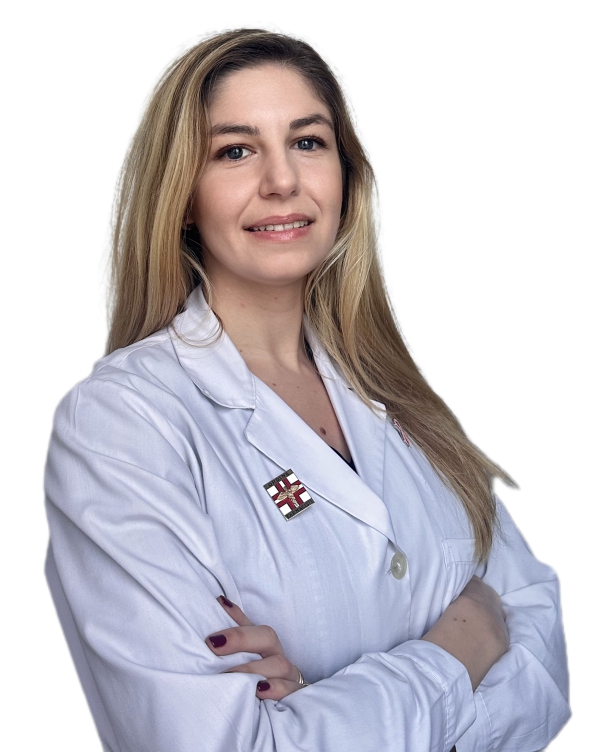Polycystic Ovary Syndrome (PCOS) is one of the most widespread female endocrine disorders in the world, and Italy is no exception. Around 10% of women of reproductive age are affected—though experts believe the real number is likely higher.
A 2019 study [1] analyzed the global incidence of PCOS and found a 30% increase in cases, with Italy ranking first for prevalence.
Many women have PCOS but are unaware of it, or have never undergone tests or medical exams to find out.
Crazy, right? It means that you or at least one of your friends could have it without knowing.
In this article, we’ll explore the key aspects of PCOS that every woman should know:
-
Causes of PCOS
Why does PCOS develop?
The exact cause of Polycystic Ovary Syndrome is still unclear, although a genetic predisposition appears to be a common factor.
A February 2023 study [2] analyzed the causes and consequences of PCOS and confirmed that the syndrome tends to run in families.Another significant finding from this and a 2018 study [3] is the key role of epigenetics in this multifactorial condition. Epigenetics studies how the environment influences our genes—meaning everything around us: our lifestyle, diet, habits, thoughts, relationships, and even the air we breathe. Research on identical twins has shown that our choices and environment play a major role in our physical and psychological development.
Recent studies have increasingly focused on how these epigenetic influences contribute to the onset of PCOS. Although there is no definitive cure, research shows that it is possible to manage and reduce symptoms, improving quality of life.
-
Symptoms
What does PCOS involve? How can you recognize it or suspect you might have it?
Let’s take a closer look at the most common symptoms:
PCOS is a heterogeneous condition, meaning it affects women differently and impacts multiple aspects of life—physical, emotional, and psychological.
If you want to learn more about the psychological effects of PCOS, you can read our article:
PCOS and Mental Health: How Polycystic Ovary Syndrome Affects Your Life.
It’s important to note that not all women develop the same symptoms, which is why many remain unaware they have PCOS. Only in recent years has attention to this disorder increased, and a gynecologist’s diagnosis through proper exams is essential.
ASome symptoms, however, are more common—or more disruptive to a woman’s quality of life.A study [4] examined two of the main PCOS-related issues: insulin resistance and hyperandrogenism.
PCOS is often associated with insulin resistance, which increases the risk of type 2 diabetes, obesity, and cardiovascular diseases such as hypertension, atherosclerosis, dyslipidemia—and even some cancers.
So what exactly is insulin resistance?
Insulin is produced in the pancreas and released into the bloodstream to regulate blood sugar after we eat carbohydrates or simple sugars. It helps glucose enter cells for energy. When cells stop responding properly to insulin, the pancreas produces even more of it, and blood sugar remains high, which is toxic over time.This leads to:
Sugar cravings are also worsened by hormonal imbalance, which disrupts menstrual regularity. The more sugar we consume, the more our cravings increase. Some natural substances can help regulate glucose absorption and indirectly reduce cravings.
PCOS often causes ienlarged ovaries, follicular cysts, and hormonal and metabolic imbalances. The underlying cause appears to be an abnormal increase in androgen hormones due to a hormonal dysfunction caused by an increase in luteinizing hormone (which controls the ovaries) and follicle-stimulating hormone (which controls the maturation of the eggs), both products of the pituitary gland.
So, how does hyperandrogenism (excess androgens) manifest?
First of all, it should be emphasized that 75% to 90% of women with PCOS or oligomenorrhea (irregular menstrual cycles that are light but prolonged) have above-normal levels of androgen hormones.
The consequences, therefore, are different! You may recognize yourself in some, while others may not. This is because there are different forms of PCOS.
Here, hyperandrogenism is the hormonal alteration we were talking about above, which leads to an alteration of the cycle, increases the craving for sugar, causes hormonal acne, hirsutism and alopecia and leads to complications when a woman decides to try to become a mother.Numerous studies have highlighted a clear difference in the composition of the intestinal microbiota (the "good" bacteria found in our intestines) between healthy patients and patients with PCOS. The decrease in our lactobacilli and bifidobacilli, which ensure our balance, is accompanied by an increase in pathogenic Escherichia and Shigella patogeni.
But what does this mean?
SAccording to the DOGMA Theory [5], this imbalance of the bacterial flora (dysbiosis)leads to an increase in the permeability of the intestinal mucosa due to the reduction of tight junctions, the proteins that act as junctions between cells and as filters. In this way, pathogens such as Gram-negative bacteria can pass from the colon to the bloodstream. At this point, the circulatory system is activated, interfering with insulin function and leading to increased inflammation. New clinical practices see the study of the patient's microbiome as a fundamental step in diagnosis and in deciding the most appropriate therapy. -
Consequences of the Symptoms
The effects of PCOS symptoms are wide-ranging and not always obvious. Here are some possible consequences:
Do you recognize any of these in yourself, or in someone close to you?
If so, it’s time to book a gynecological check-up to discuss your concerns. Your doctor can order the necessary tests to confirm whether you have PCOS.
-
Impact on Women’s Health
All these symptoms can significantly affect a woman’s quality of life, not only physically, but also mentally and emotionally.
PCOS disrupts endocrine, metabolic, and reproductive balance, influencing:- Aesthetic aspects: hirsutism, alopecia, acne, and weight gain can lead to a distorted self-image and constant comparison with unrealistic beauty standards.
- Sexual health: pain during intercourse is common, as are reduced libido and fertility difficulties due to hyperandrogenism.
- Mental health: emotional consequences are often severe and should never be underestimated. Managing PCOS effectively requires psychological stability, as stress and emotional strain can worsen physical symptoms.
- Increased disease risk: insulin resistance, diabetes, hypertension, atherosclerosis, hypercholesterolemia, and even endometrial hyperplasia and cancer.
- Pregnancy complications: including miscarriage, gestational diabetes, and birth-related issues.
-
Possible Solutions
Women who experience the same symptoms may experience them with varying degrees of intensity. As we've said, PCOS is a heterogeneous condition. Due to its nature, treatment cannot be limited to just one aspect. Your gynecologist will monitor you after diagnosing the syndrome. A nutritionist or dietitian can help you plan a targeted and balanced diet, giving you practical advice on the right combinations to control insulin resistance. A specialized personal trainer can recommend targeted exercises for weight control and increasing lean body mass, without excessively stimulating inflammation.
If you want to learn more about the nutritional and training implications of PCOS, you can find the information in the article:
Polycystic Ovary Syndrome: Diet and Exercise to Manage the Syndrome
A psychologist or psychotherapist can offer you the support you need to accept your body and regain serenity. At ArmoDonna, we offer a product that, along with all these lifestyle and diet tips, helps you manage the symptoms of PCOS! Because every woman deserves to feel good and beautiful, always!
We all know that PCOS cannot be cured. We have to live with it. Fortunately, science is on our side. With the right support, the right supplements, and the right diet and lifestyle changes, it is possible to alleviate and control its symptoms, improving both your psychological and physical health.
From this desire to help as many women as possible and from our own personal involvement, we decided to create a product that isn't just your average supplement, with the same old active ingredients, but a 100% made in Italy, complete supplement that makes us feel beautiful and well!
Pass this article on to the women you love! You could help them more than you think!
Let's grow this community and help each other.
With love,
Dr. Elena Torghele


